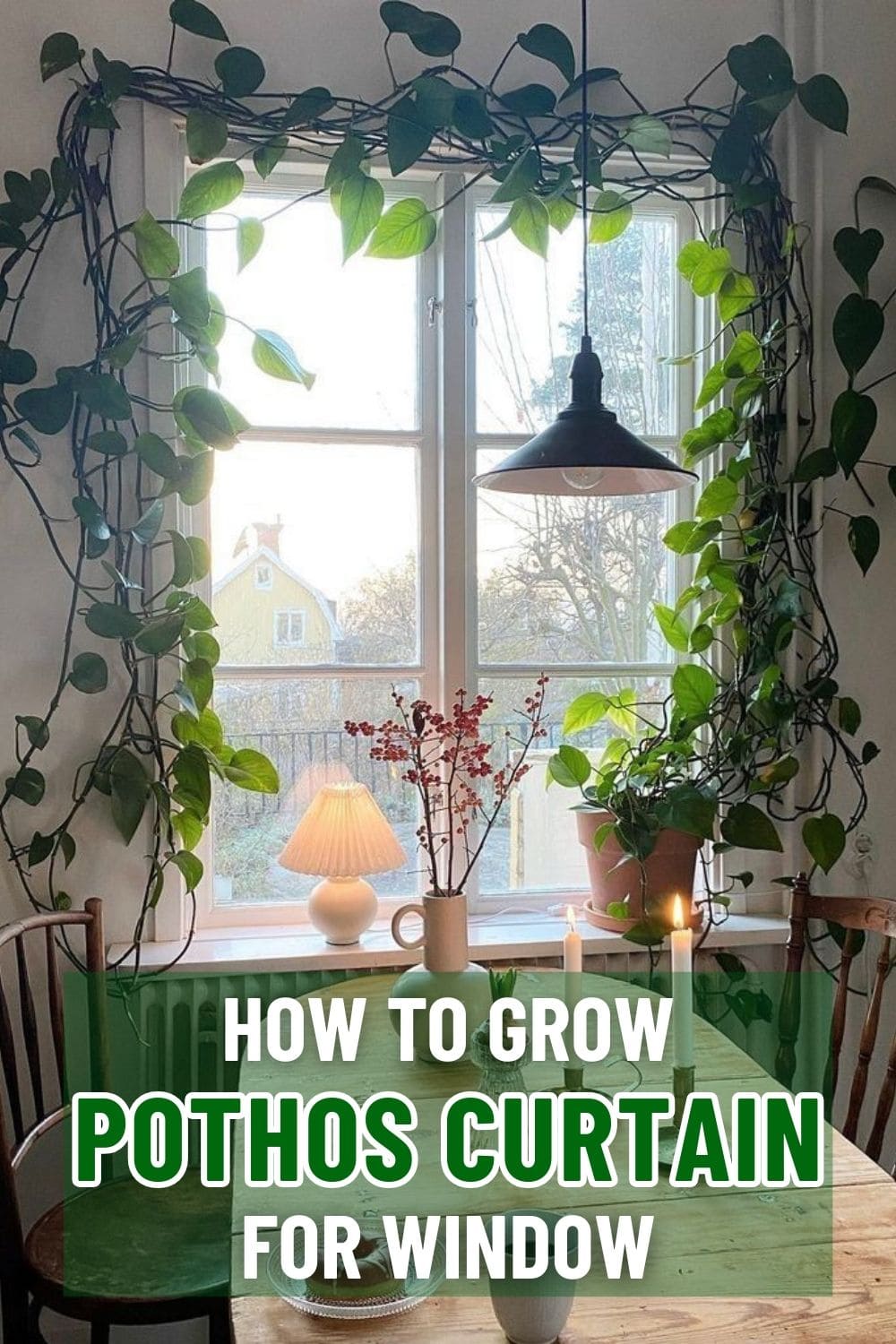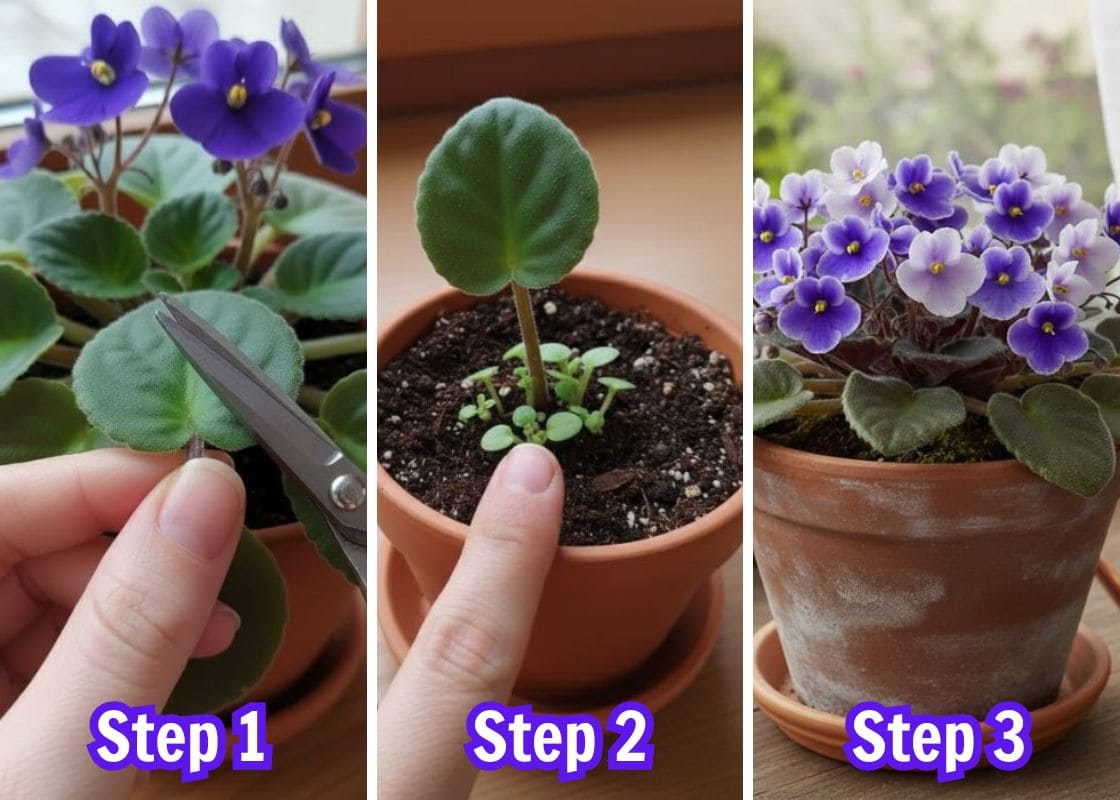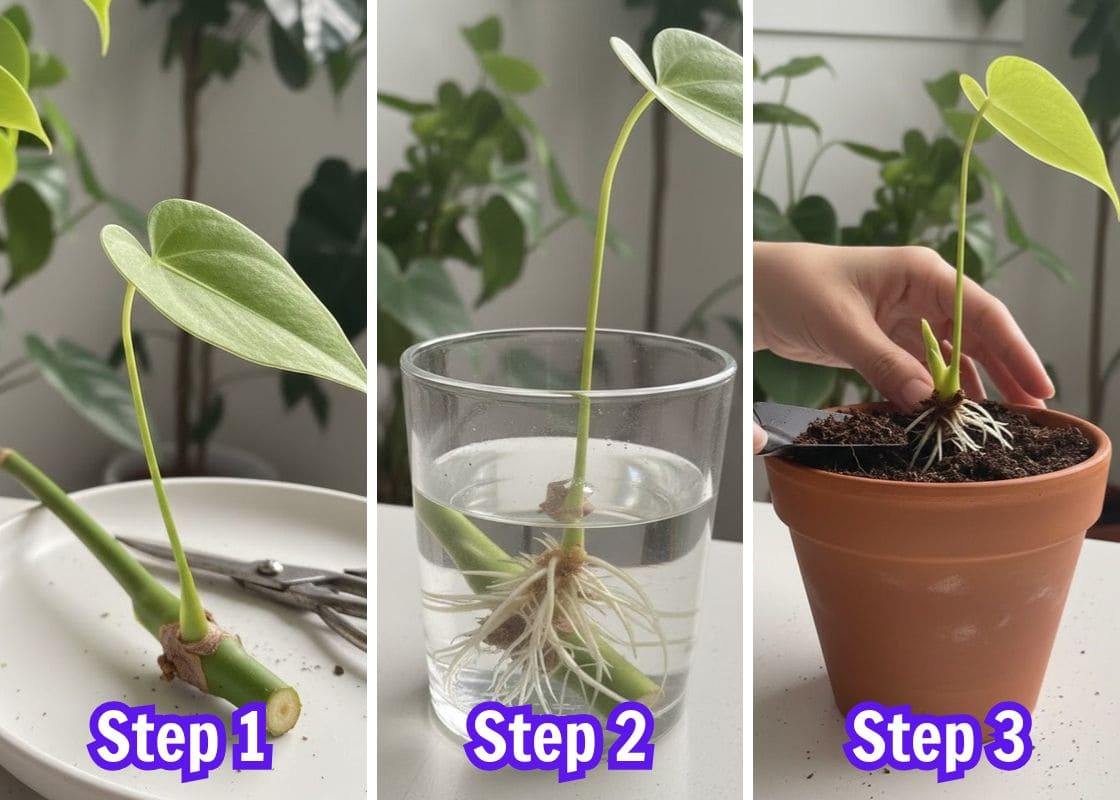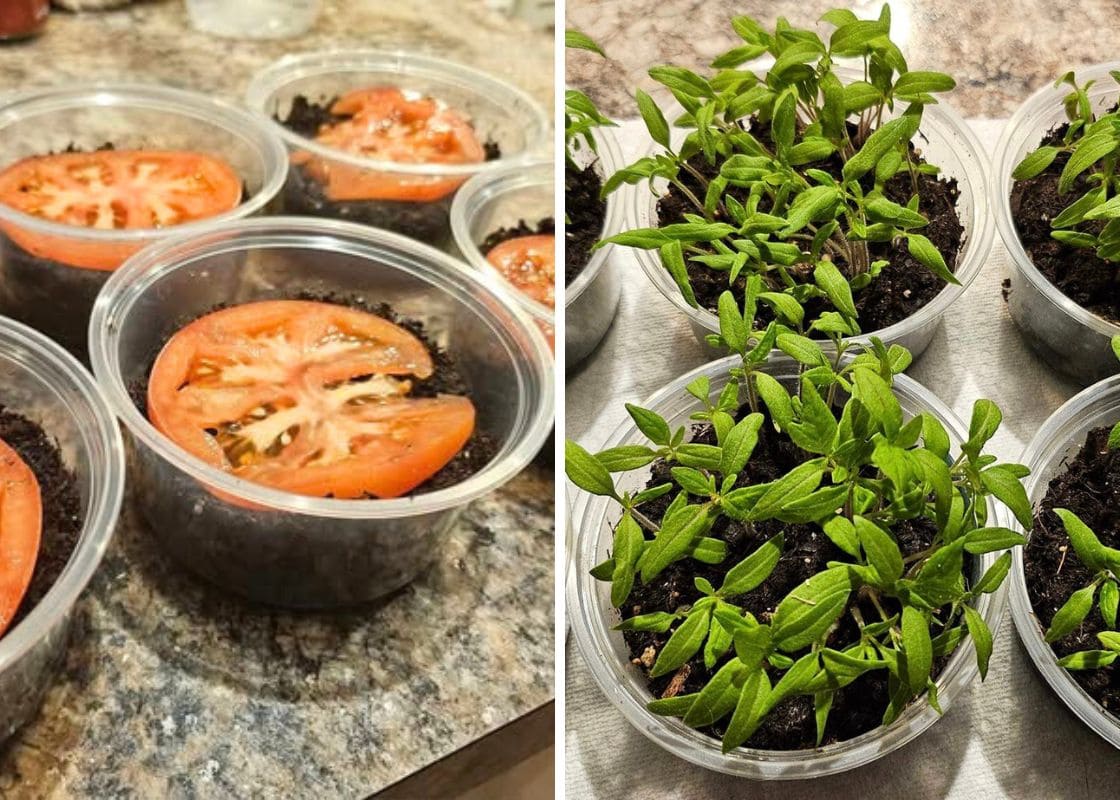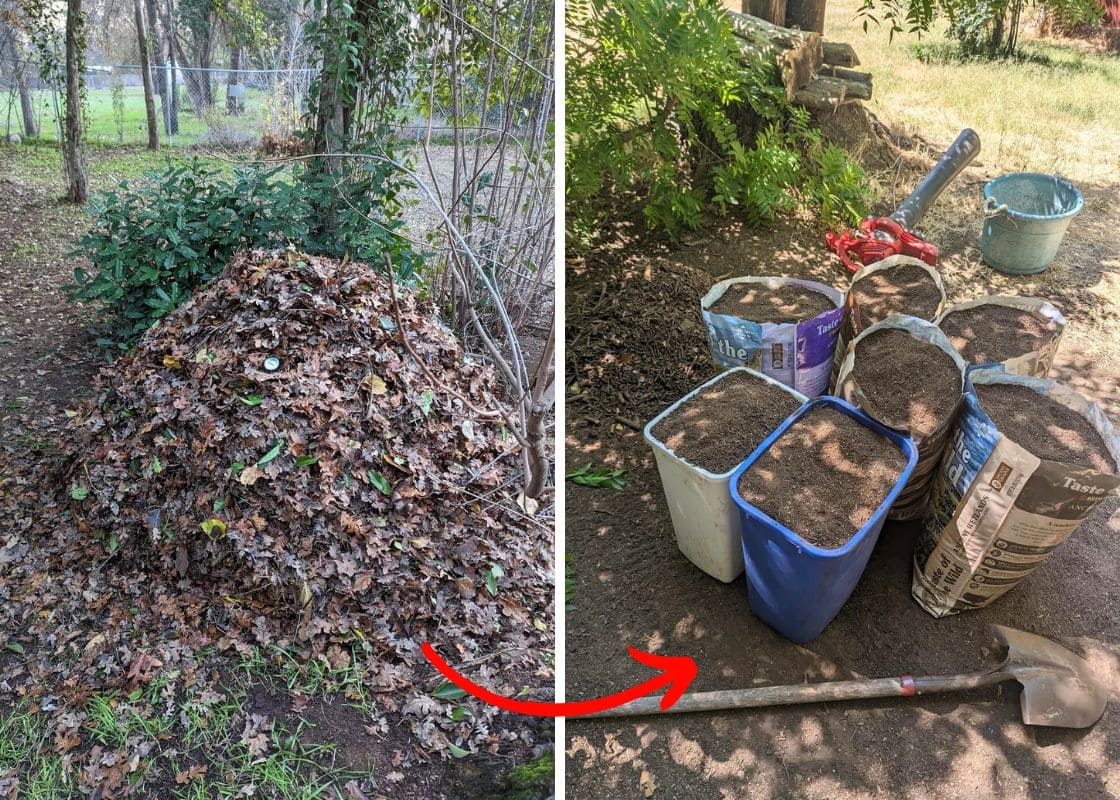There’s something magical about waking up to sunlight filtering through a curtain of leaves instead of fabric.
With cascading vines of Epipremnum aureum (better known as pothos or devil’s ivy), you can soften bright light, add a layer of privacy, and bring a lush, tropical feel into your home.
A pothos curtain turns an ordinary window into a living, breathing work of art. The best part is that pothos is one of the easiest houseplants to grow.
If you’ve ever wanted to replace blinds with greenery, here’s a step-by-step guide to creating your own pothos curtain.
Step 1: Choose the Right Window
Pothos thrives in bright, indirect light, which makes east or north-facing windows ideal.
A south or west-facing window works too, but you’ll need to hang sheer curtains or set your pots slightly back to protect the leaves from harsh midday sun.
The more steady the light, the more evenly your vines will grow.
Step 2: Pick Healthy Starter Pothos

You should choose one or two pothos plants with long, trailing vines to get a head start.
Golden Pothos is a classic, but don’t overlook striking varieties like Neon Pothos, Marble Queen, or Satin Pothos for extra texture.
If your plants are young, don’t worry as pothos grows quickly with the right care.
Step 3: Set Up Your Support System
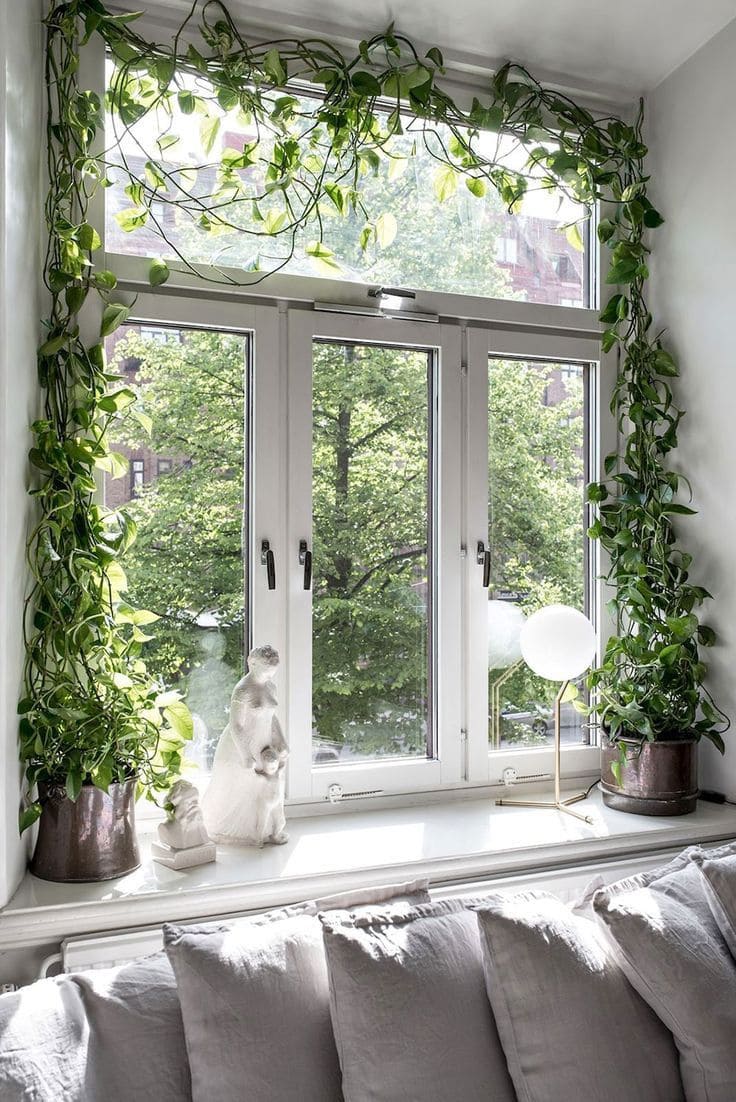
To create the curtain effect, you’ll need something for the vines to follow. A curtain rod, tension rod, or wire grid works beautifully.
From there, run vertical guides such as strings, fishing line, or twine from the rod down to the window sill.
You should space them a few inches apart to allow leaves to overlap and create that lush, curtain-like look.
Step 4: Train the Vines as They Grow
Pothos vines won’t always follow your plan unless you guide them.
As new growth appears, gently wrap, clip, or tie the vines to your vertical guides. Soft plant ties or small clips work well without damaging stems.
Over time, the plant will naturally settle into place, with leaves fanning outward to cover the gaps.
Step 5: Build the Perfect Soil Mix
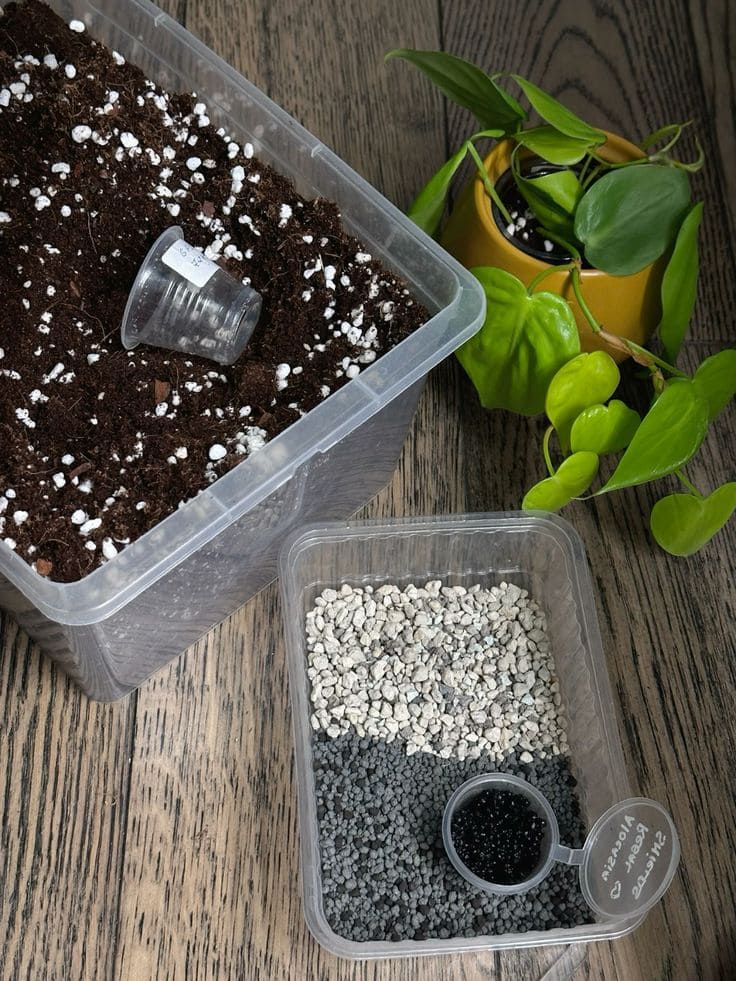
You also need to provide your pothos with the right soil.
A good pothos mix holds some moisture but drains well enough to prevent root rot. You can blend your own at home:
- 50% standard potting soil for structure
- 25% perlite or pumice for airflow and drainage
- 15% orchid bark or coco husk for chunkiness
- 10% worm castings or compost for gentle, organic nutrition
This combination prevents soggy roots, keeps oxygen flowing, and provides nutrients that help vines grow strong and long.
In addition, always use pots with drainage holes so excess water can escape.
Step 6: Water the Right Way
Pothos can handle the occasional dry spell, but consistent care will keep your curtain lush.
Water when the top inch of soil feels dry. Pour until water runs out of the drainage holes, then empty the saucer so roots don’t sit in water.
Gradually, you’ll notice a rhythm, usually every 7-10 days in warm weather and less in cooler months.
Read more: Watering Pothos: When, How Often, And How Much Is Needed
Step 7: Fertilize for Fuller Pothos Growth
For the densest curtain, your pothos needs steady nutrients. Use a balanced liquid houseplant fertilizer labeled 10-10-10 or 20-20-20.
Dilute it to half strength (for example, if the instructions say 1 teaspoon per liter, use ½ teaspoon). Then apply every 4-6 weeks during spring and summer.
Fertilizer provides the nitrogen for lush green leaves, phosphorus for strong roots, and potassium for resilience and shine.
Also, you can cut back to once every 8 weeks in fall and winter, or stop altogether when growth slows.
If you prefer organic care, worm casting tea or compost tea every month works beautifully.
Step 8: Prune and Propagate for Thickness
To keep your curtain looking full, trim back leggy or overly long vines. This encourages branching, which gives you more coverage.
Don’t toss the cuttings as pothos cuttings root easily in water and can be planted back into the same pot.
Over time, this creates a denser, layered curtain effect that looks rich and intentional.
Step 9: Rotate and Refresh
If your window gets light from only one direction, rotate the pots every couple of weeks so all sides of the plant get exposure.
This prevents uneven growth. You can also occasionally rinse or wipe the leaves to remove dust. Clean leaves not only look brighter but also absorb light more efficiently.
Step 10: Add Style and Personal Touches
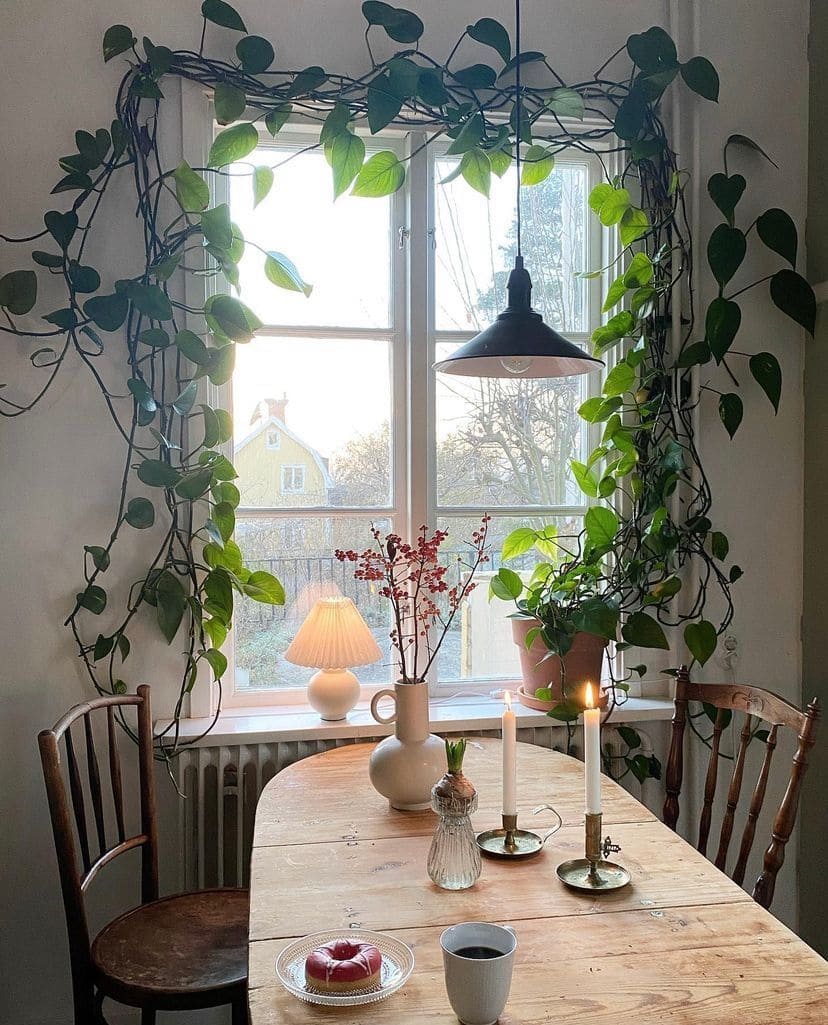

Once your pothos curtain fills in, you can make it your own.
You can mix varieties for a patterned look, weave fairy lights through the vines for a cozy glow, or let the curtain trail past the sill for a jungle vibe.
Some people even grow their curtain just halfway down the window for a soft, airy effect.
Your pothos will grow fast, so you can keep shaping and styling it however you like.
